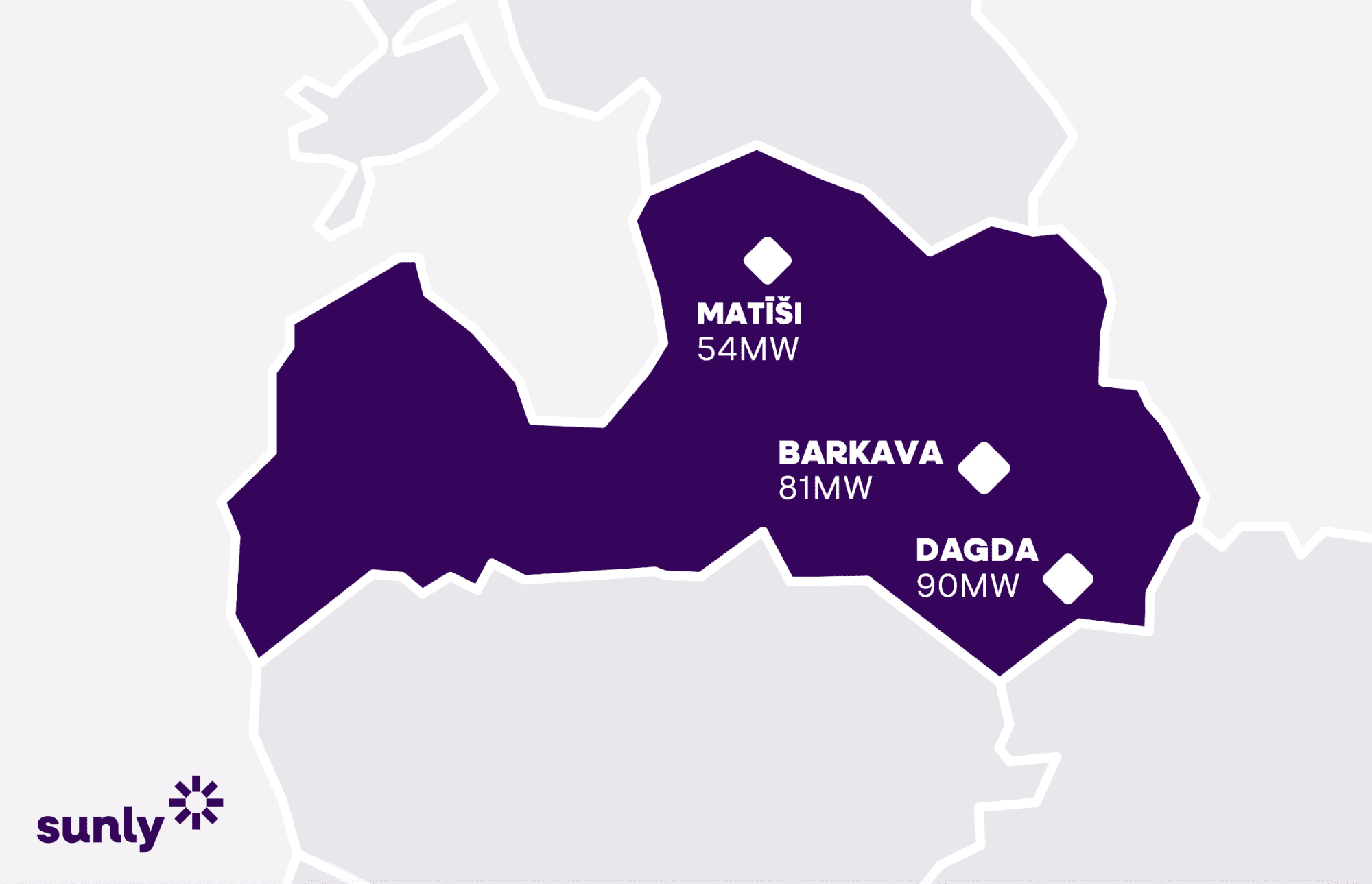This autumn, the renewable energy company Sunly started work on three large solar park projects in Latvia, with a combined capacity reaching 225 MW. These projects will be capable of meeting the annual electricity consumption of over 118.000 households. The parks are planned to be developed in the Valmiera, Krāslava, and Madona regions.
This autumn, construction of all three solar parks is being initiated, with work underway on connection installations and preparatory activities for the solar park construction. Work has already begun on the first project in Valmiera Municipality, where a 54 MW solar park will be developed near Matīši village. Simultaneously, work has commerced on a substation for a 90 MW solar park in Dagda Parish, Krāslava Municipality. Infrastructure for access roads is being adapted there, and in close cooperation with JSC Augstsprieguma tīkls, the foundations for the substation, located beneath an existing 110 kV high-voltage line, are already being laid this autumn.
The third project with a capacity of 81 MW will be situated near the village of Barkava in the Madona region, where Sunly has previously implemented a smaller 11 MW solar park. This makes Barkava one of the most significant energy production sites in the Madona region. Alongside the implementation of the projects, 'Sunly' is committed to supporting local communities in the areas where the projects are being carried out by facilitating the realisation of socially significant initiatives starting in 2025.
Toms Nāburgs, Sunly's Country Manager for Latvia, noted:“Although Latvian legislation does not require investments in local communities when implementing solar energy projects, we want to build good long-term relationships with locals, as we understand that we are investing for at least 30 years. Our goal in developing the energy sector is not only to foster local economic growth but also to help local communities develop and thrive.”
All three solar energy parks in Latvia will be developed as hybrid parks, combining solar and wind energy along with a battery energy storage system (BESS). This approach will enhance the predictability of energy production and reduce grid connection and operational costs. By combining multiple energy generation sources at a single connection point, connection costs are lowered for both the producer and all consumers, which in the future could account for more than half of the total energy costs.
With Latvia, Estonia, and Lithuania will disconnect from the Russia-controlled frequency area called BRELL in February 2025, it is crucial for all electricity producers to be prepared to adjust production rapidly and to utilise energy storage solutions for security purposes.
As Sunly’s CEO Priit Lepasepp explains: “Continuous technological development is essential if we are to increase security and stability in the energy market in the region. Our goal is to integrate storage solutions into as many solar and wind parks as possible. With the in-house team of storage and electricity trading, we are constantly looking for new ways to make prices for end-consumers less volatile".
These projects are part of Sunly’s long-term strategy in the Baltic region and Poland, where the company has secured €300 million in funding from Rivage Investment and Copenhagen Infrastructure Partners, with the participation of Norway’s largest pension fund, Kommunal Landspensjonskasse. This funding not only underscores Sunly's strong market position in the region but also highlights the company’s commitment to swiftly implementing concrete projects.
